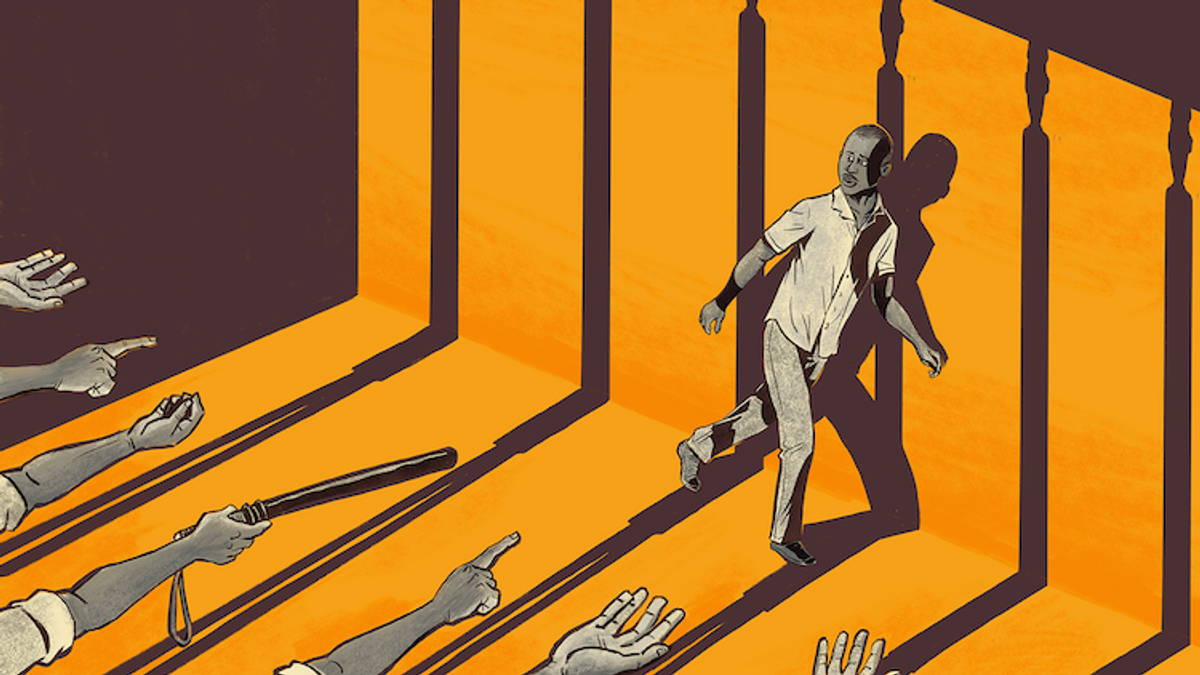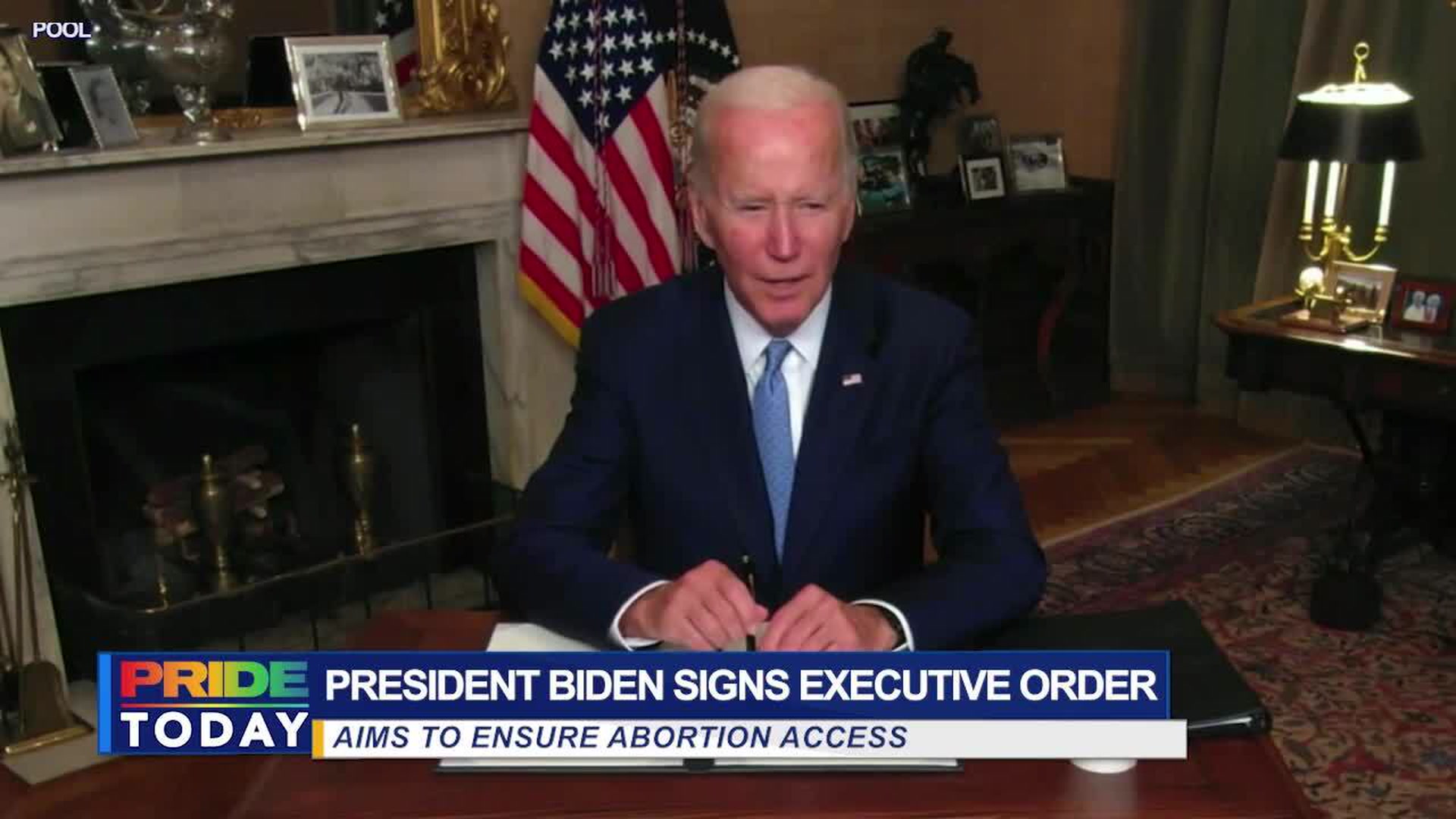This story was originally published by Global Press Journal.
Stephen spent two years in prison, where he was regarded as a danger to others and subjected to weeks of solitary confinement should he make contact with another man.
Police arrested him after he was found in a hotel room with a man; they subjected him to the humiliation of an anal examination, Stephen says, and charged him with having carnal knowledge of another person against the order of nature. He pleaded not guilty, and after a yearlong trial, heavily covered by the media, he was convicted and sentenced to 15 years in prison. Stephen was released two years later in 2020 -- one of nearly 3,000 prisoners to receive a presidential pardon.
In a country where same-sex relationships are criminalized and the threat of a lengthy prison sentence looms, it's difficult for gay men to live openly.
Zambian law lists same-sex relationships as "unnatural offenses," under the same subheading that includes having "carnal knowledge of an animal." The accused can face challenges finding representation as lawyers are reluctant to take on these cases, fearing social stigma. They often deal with homophobic attacks, as well as arbitrary arrests, with many detainees subjected to extortion.
Stephen, who didn't want his surname used for fear of reprisal, says that when he was taken into custody, a man approached his mother and offered to help her son, for a price. "Someone promised that they would help have me released, and my mother sold my car so that she could use the money to pay for my freedom, but unfortunately the man ran away with the money," Stephen says, noting that the details surrounding the man are vague as his mother refuses to elaborate on her ordeal.
According to Violations of the Rights of Lesbian, Gay, Bisexual and Transgender Persons in Zambia, a report by Global Rights, a United States-based human rights organization, "extortion of gay men remains a major problem and is often conducted with police participation."
The report says the "blackmail of men believed to be gay was a regular occurrence and often led its victims to financial ruin, depression, and ostracism from family and community."
Chileshe, who also doesn't want his full name used for fear of reprisal, says police arrested him saying they had evidence of him in a compromising manner with another man. The arresting officers gave him a choice -- pay them money or they could proceed with the matter to court, where he could face a lengthy prison sentence, he says.
He paid the bribe, but police continued to blackmail him.
"I had to relocate and start a new life," Chileshe says. "I could not stand the harassment I went through with the police."
The Southern Africa Litigation Centre, which works to promote and advance human rights in southern Africa, released in December a report on sexual orientation issues in Zambia. Citing a 2017 U.S. Department of State report, it said, "police on several occasions arrested suspected LGBTI+ persons on bogus charges" and held them overnight in a cell with the choice of either paying their way out or taking the matter in front of a judge.
In the rare instances when a matter ended up in court, the evidence didn't support a conviction, and the accused walked free -- but the damage had already been done to their reputations, and they were left to live as social outcasts, fearing attacks in a country that doesn't accept same-sex relationships, according to the Southern Africa Litigation Centre's findings.
Jack Mwiimbu, minister of home affairs and internal security, the ministry in charge of law enforcement, says he is aware of corrupt practices in the police service that infringe on human rights but didn't directly comment on the alleged persecution by police of people in same-sex relationships.
In response to requests for comment on accusations the police are extorting money from members of the gay community, who are often arrested on unsubstantial evidence, Mwiimbu says, "Not necessarily to comment on that matter, but generally, we know that there are corrupt elements in the police service that are denting the image of police. We will deal with them."
The Zambia Police Service didn't respond to repeated requests for comment.
Of the 34 countries in Africa surveyed in 2020 by Afrobarometer, an independent research network that gauges attitudes on economic, political, and social matters in Africa, Zambia has one of the lowest levels of tolerance toward people of different sexual orientation. It falls just above Uganda and Gambia.
Those who defend and work with anyone accused of having a same-sex relationship often contend with assumptions about their own personal lives.
"There is some stigma because people begin to think that you are part and parcel of what you are defending," says Daniel Libati, a human rights lawyer who represented Stephen during his trial.
While Libati admitted no knowledge of any police bribery in such cases, he did say arrests of those suspected of being in a same-sex relationship were common. "Most cases end at the police due to lack of substantial evidence to take the matter to court," he says.
Dignitate Zambia, a human rights organization that advocates for equality and nondiscrimination of marginalized people, paid the lawyer's fee for Stephen. Sarah Chirwa, the group's head of programs, says the organization is focused on the marginalized community in Zambia, providing legal representation as well as training.
"We carry out trainings that sensitize people, especially the marginalized, on the legal framework in Zambia," Chirwa says. "This includes paralegal trainings so that people, especially the gay community, who often face arbitrary arrests, are taught how to defend themselves when arrested on flimsy charges."
The organization isn't able to access official numbers on arrests of those suspected of being in same-sex relationships but Chirwa says they are common. "We feel the LGBT community are very marginalized owing to the laws of this country, hence we provide legal representation for those that may be in need," she says.
Though free from the confines of a cell, Stephen now feels imprisoned in his own home. He leaves the house only at night to run errands, relying on a trusted taxi driver to transport him. The coronavirus pandemic has normalized wearing a face mask, which serves as an added protection for Stephen, who fears being recognized as the man who was once at the center of a media frenzy. His safety has been threatened on several occasions.
"I have been verbally attacked, and some people followed me home when they heard I was out," Stephen says. "They threatened to beat me up so I had to hide. I do not go out. I am just confined to this house."
Stephen, once a confident and happy man who worked as a government administrative officer alongside his studies in public administration, is now a shadow of his former self, timid and soft-spoken, unable to recount his ordeal without breaking down. He lives with his elderly mother, who he says is all that keeps him going.
"We were a happy family. I looked forward to furthering my studies and looking after my ailing and elderly mother, but now all I see is her health deteriorating and I can't help her," says Stephen, who no longer works or studies. "It's devastating. Death is the only thing on my mind. I wish I could be dead."
Global Press Journal is an award-winning international news publication with more than 40 independent news bureaus across Africa, Asia, and Latin America.
Follow More Advocate News on Pride Today Below


















































































